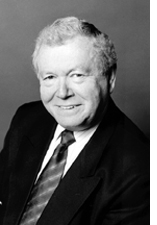By Rabbi Dow Marmur

JERUSALEM — It took me less than 24 hours after returning to Israel to start worrying that there may be no political party I could vote for in next month’s general election. Though more than thirty (!) parties will be running candidates, there’s really not that much choice, because many are linked to defined groups, particularly the Orthodox and the Arab parties. And even within the so-called mainstream it’s not easy to decide.
But I find it very easy to determine whom not to vote for. The combined list of Netanyahu’s Likud and Lieberman’s Yisrael Beiteinu has made the right-wing dangerous: Likud has ditched the few congenial, almost liberal, of its Knesset members like Benny Begin, Michael Eytan and Dan Meridor in favour extremist hotheads like Moshe Feiglin.
Both Netanyahu and Lieberman are conducting foreign policy to please radical voters at home. Netanyahu’s toxic decision to go ahead with building homes for Jews in the so-called E1 area has enraged even friendly states; Lieberman’s musings about the leaders of these states surpass all his countless earlier anti-diplomatic damaging moves.
The new parties that have sprung up (e.g., Tzipi Livni’s Hatnu’a and Yair Lapid’s Yesh Atid) don’t make it easy to discern what they really stand for, but it’s easy to see why they’re against all the others: in order to appeal to the many disgruntled and disillusioned voters. As I’m among those who refuse to describe themselves as either disgruntled or disillusioned, I can’t vote for them.
That, in theory, leaves me with Labour and Meretz. Both are rooted in Socialism, which suits me, and both claim to care for the disadvantaged in Israeli society, where the gap between rich and poor is widening at an alarming pace. That appeals to me, too. I’ve voted for Meretz in the past but now feel that it was almost futile, for it’s so insignificant and ineffective that it no longer seems to make much difference to Israeli public life.
Which leaves me with Labour. A Reform rabbi, Gilad Kariv, has even won a place on its list, albeit not high enough to be elected, yet indicative of the party’s positive attitude to religious pluralism. I’m also attracted by the leader of the party Sheli Yachimovitch saying that she doesn’t want to use the stalled/non-existent peace process as a cover for ignoring the many social problems that the country is facing.
But the problem with Labour is that even its own leaders don’t seem to believe in it. Three of them, each once in charge, have defected to other parties in recent years: Shimon Peres left Labour for Kadima (which is disintegrating before our very eyes and may get two mandates or less in the next Knesset) prior to becoming a statesman- president; Ehud Barak destroyed it before forming another party that won’t survive this election either; and now Amir Peretz, peeved at not being placed high enough on the party list and objecting to the current leader, has moved over to Tzipi Livni’s bunch,
If those once elected to lead the party don’t believe in, how can and should anybody else? The temptation, therefore, is not to vote at all and no doubt many Israelis will yield to it; the voter turnout has been diminishing with each election. This, combined with the growing strength and – alas – popularity for the Netanyahu-Lieberman axis, makes me at times fearful about the future of democracy in Israel.
All this brings me once again to the even greater fear that the dangers Israel is facing from within may be more menacing than from its enemies without.
*
Rabbi Marmur is spiritual leader emeritus of Holy Blossom Temple in Toronto. Now dividing his time between Canada and Israel, he may be contacted at dow.marmur@sdjewishworld.com